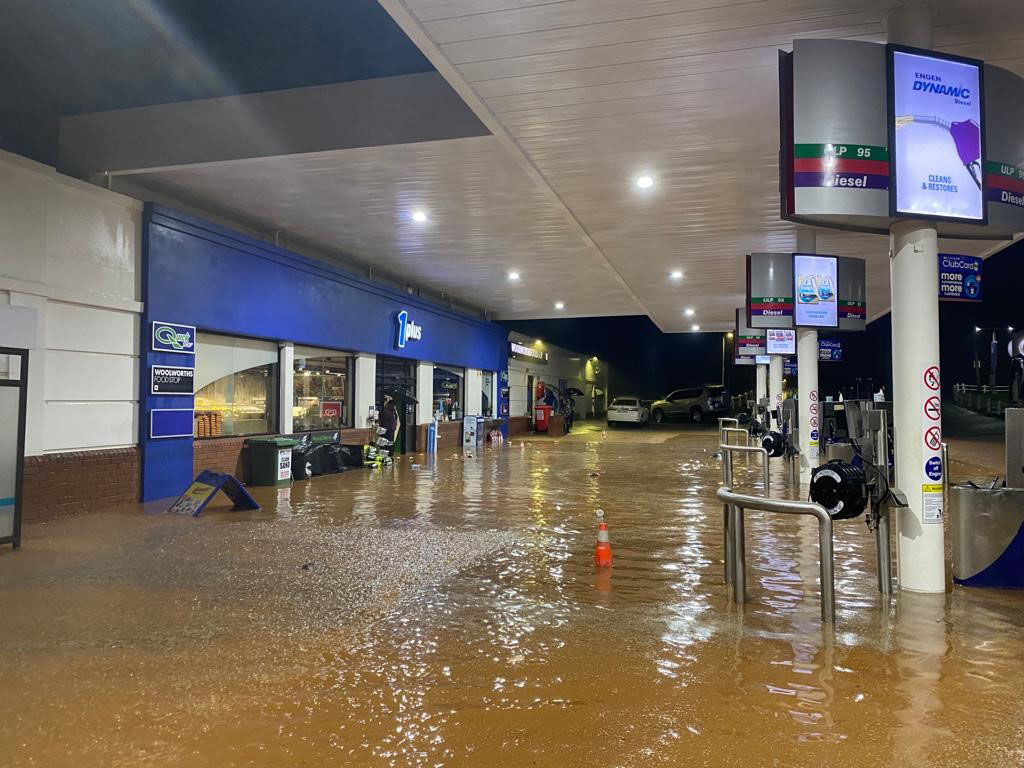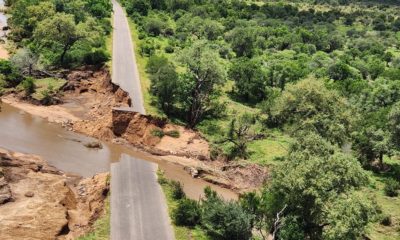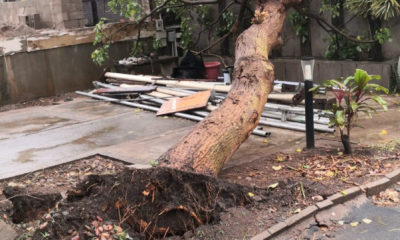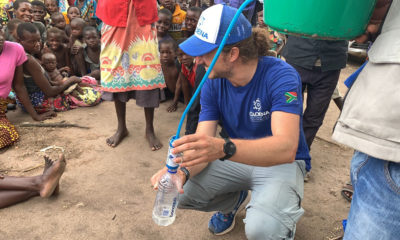
Featured Item

Community rallies to help pick up pieces in KZN
“At my home we have power but no water. Luckily we have a small JoJo [rainwater collection] tank, but it’s being used up quickly. Our ward has implemented water shedding overnight. Friends of ours just managed to escape from their home, passing their children out of windows into the arms of strangers, before their entire home washed away in Umdloti.”
This is the reality of Umhlanga resident Alana Baranov, living in KwaZulu-Natal (KZN) in the wake of flooding that has been declared a natural disaster.
“The atmosphere is heavy,” says Baranov. “eThekwini [the Durban metro] is only just recovering from the riots in July 2021. A lot of the infrastructure had only just been rebuilt, and this devastation is vast. So many have lost their homes and possessions. Livelihoods have been badly affected and scores of people are still missing. The mood is a lot more sombre than even after the riots. People feel like they’ve endured a lot, and just don’t know where the resources will come from to rebuild all over again.
“Luckily, our community hasn’t been as affected as others, but electricity in Umhlanga, Izinga, and Prestondale is still up and down and the water has been off more than it’s on,” she says. “When it’s on, it drips out the tap, and there are concerns about water quality. Those who can afford it are drinking bottled water. There have been warnings of water-borne diseases. Most of the search and rescue teams are on antibiotics because of the hours they spend in dirty water.”
Capetonian Elana Sevel, her husband, and three young children planned to go to Durban for Pesach, but as they waited for their flight, they were delayed for five hours by the terrible storms. Sevel was nervous, but they decided to proceed. They finally managed to fly in and have a normal Pesach and holiday, but all around them were signs of disaster.
“My brother-in-law’s family had to move out of their house in Izinga Estate for a night because the entire boundary wall just below their house collapsed and there was a lot of damage,” she says. “When we were at the airport coming home after Pesach, the air conditioner hadn’t been working for days and there was no water. The whole of Pesach, we saw helicopters flying over, looking for missing people.”
“As far as the greater [disadvantaged] community is concerned, they are really in bad shape, and it’s going to take years to fix everything”, says Susan Abro, the president of the South African Jewish Board of Deputies (SAJBD) KwaZulu-Natal Council.
“There’s hope for recovery but right now, KZN is still reeling with the scale of the devastation,” says Baranov. “There’s a feeling that the province has had a few particularly hard blows recently, and it will take a lot of time and finances to rebuild. Of course, the lives lost are irreplaceable, and some livelihoods won’t be recovered.”
The flooding has also devastated the environment. “The sea off our coast has incredibly high levels of E.coli and pollution,” she says. “Many are worried about chemicals from the UPL factory [which hasn’t been fully dismantled since it was burnt during the July insurgency] being washed down into the sea and poisoning human, animal, and plant life in its wake.”
The Jewish community has joined other communities and nongovernmental organisations to mobilise support. “The SAJBD is devastated by the suffering in KZN, the loss of life, the destruction of homes and infrastructure, and the humanitarian distress,” says SAJBD National Director Wendy Kahn. “The SAJBD has worked closely with The Angel Network [TAN]. TAN Durban, with its presence on the ground, was able to ensure that relief reached those most desperately affected. Our partnership with TAN allowed the SAJBD Relief Fund to provide aid.”
“The Angel Network is working tirelessly on the ground,” says TAN founder Glynne Wolman. “It’s thanks to the generosity of individual donors, the SAJBD, Investec, and amazing volunteers, that TAN Durban has managed to shop, sort, load, and pack food and supplies.
“TAN Gauteng co-ordinated the mammoth task of getting a 16-ton truck to Durban filled with 10 000 litres of water, hundreds of toiletry packs, and thousands of buckets. This truckload was dropped at SA Harvest, which ensured that the heroes at the search and rescue station at Virginia Airport got everything to the worst affected areas,” she says.
“Our biggest hurdle is in accessing communities where roads and bridges have been washed away. At the moment, residents have to walk around the washed-away bridges and collect and carry food relief. This is dangerous and unsustainable.
“Our immediate focus is to get food and water to communities. If people get desperate, they will start using dirty water, which poses a big threat, particularly for babies and children. We have just received purification solutions for people to purify river water for drinking . What’s most needed is toiletries, clothing [especially for children], blankets, and food parcels.”
Working on the ground, Tanya Altshuler of TAN Durban says, “We visited an area called Molweni last week, where many homes were completely destroyed. The one home’s entire main bedroom [including the chest of drawers and wardrobe] was lying in a heap of rubble in the mud with a gaping hole where the bedroom used to be.
“We chatted to the neighbour whose house wasn’t too badly affected but his car was washed away. The saddest part is that these homes aren’t insured, neither are their cars, so they will battle to rebuild or replace. There’s so much poverty in the area, and the soil is very porous, so I can’t imagine how they are ever going to be able to rebuild their homes. The most inspiring thing is how our special community of non-profit organisations in KZN rally in every crisis to help those in need and support each other to ensure the most effective impact.”
Asked how she stays positive amongst so much devastation, Baranov responds: “As with the riots, no matter how stressful and dangerous the situation has been, the way in which ordinary people and communities have come together to mobilise, assist each other, and work as a team is truly inspiring.
“Whether it be collecting and delivering aid, assisting search and rescue crews, or physically digging roads for emergency vehicle access, people have been incredibly resilient, kind, and resourceful. It’s the best of the South Africa spirit.”










